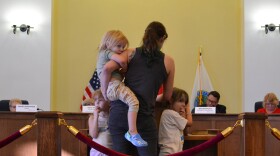When Langston Hughes, a world-renowned poet, author and playwright was invited to speak at the then all-white University of North Carolina-Chapel Hill in 1931, the event caused a major stir. A few days before his appearance, the 30-year-old Hughes had an essay and a poem printed in a local, radical publication, Contempo, about the injustice of the trial in Alabama that year of the Scottsboro Boys — nine black teenagers falsely accused of raping two white prostitutes. His poem titled, ‘Christ in Alabama,’ depicted Jesus as a Black man beaten down by prejudice just like Christ. The university was strongly criticized for inviting Hughes to campus and the school's president received many letters calling for the visit to be canceled. The president refused and one trustee wrote that Hughes should be run out of town before he had a chance to speak.

According to Hughes, the event was packed with students and local white residents. A police officer was assigned to prevent trouble. Hughes wrote in his 1958 Reader that a "...leading politician of the town attempted to get police protection for the program withdrawn..."

UNC’s archivist Nicholas Graham says the magazine "Contempo" that ran Hughes’ writings was seen as a radical publication, so its focus on the trial was not surprising. WFAE's All Things Considered host Gwendolyn Glenn talks to Nicholas Graham, UNC-Chapel Hill's archivist about Hughes' visit to the university.
Highlights from their conversation:
- Hughes’ poem and his appearance at UNC-Chapel Hill caused a major stir across North Carolina.
- UNC president at the time, Frank Porter Graham, said he had contempt for Hughes' poem and essay but refused to cancel the event or censor Hughes' speech. He said he would take full responsibility for any backlash.
- Hughes never joined the Communist Party but an editorial in the Southern Textile Review called his visit an attempt by communist, radical professors to influence students.
- Hughes' poem 'Christ in Alabama' was labeled sacrilegious by conservatives.







